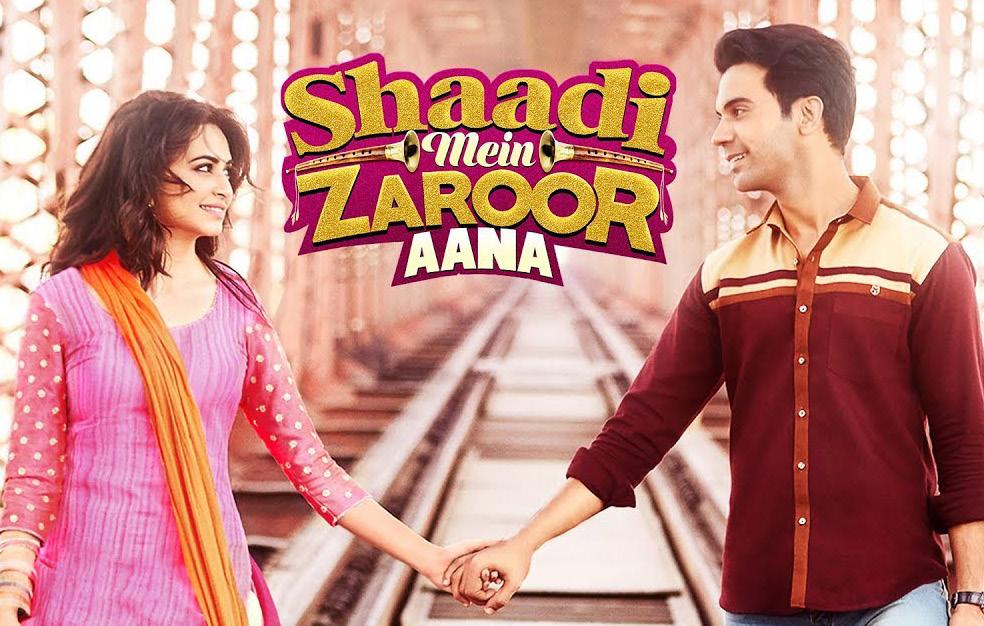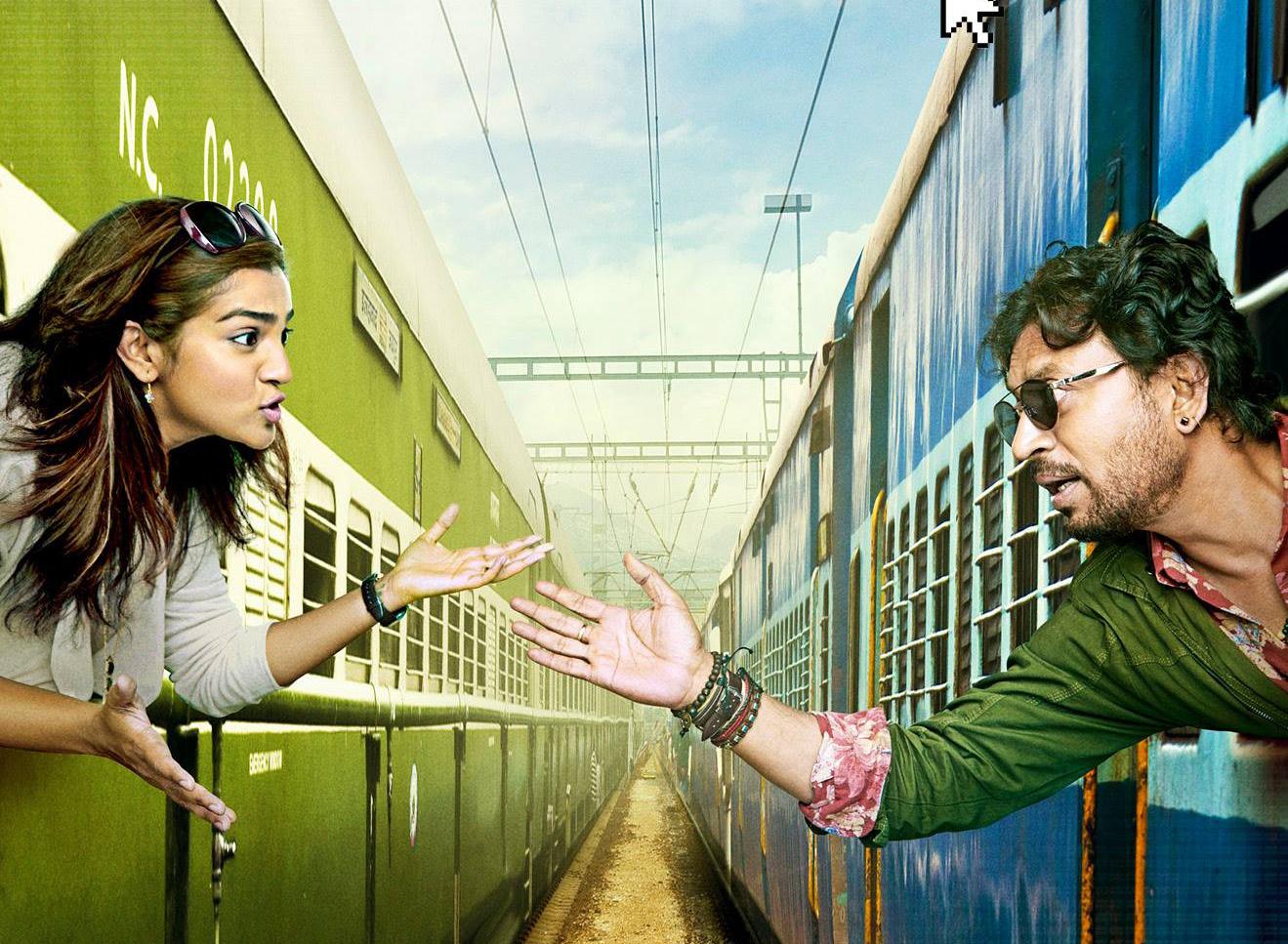
3 minute read
CRUELTIES OF SMALLTOWN ALLIANCES
from 2017-12 Melbourne
by Indian Link
Shaadi Mein Zaroor Aana
STARRING: Rajkummar Rao, Kriti
Kharbanda
DIRECTOR: Ratnaa Sinha
HHHHH
Kanpur joins the growing league of north Indian towns that have lately been used to locate and pin down charming smalltown romances about men and women with large families and loud voices who eat, belch, fart and insult one another without the fear of being judged.
Before you holler about cultural and regional stereotyping, let’s quickly move on to meet Satyendra, alias Sattu, and Aarti. They are the aspirational 20-something small-towners with stars in their eyes. He thinks she looks like actress Juhi Chawla. She thinks he is her superstar Shah Rukh Khan.
The thing about Rajkummar Rao and Kriti Kharbanda is that that they can play their aspirational characters with endearing assuredness. For Rajkummar, this is child’s play. But Kriti comes into her own imbuing her small-town character with a sense of mounting exuberance and plummeting disappointments.
Debutant director Ratnaa Sinha often loses the plot in the urry to catch the sweaty revelry of the Indian middle class as it cruises from its tradition-bound attitude towards social issues such as arranged marriage and dowry, into a new virtual world of smart phones and not-so-smart life’s decisions.
Shaadi Mein Zaroor
Aana is a very ambitious lm. It wants to keep its protagonists Sattu and Aarti in the “cute” area. But it also dares to take them into the grey zone. Aarti runs away from the mandap like Amrita Singh in Aaina and Vani Kapoor in Shudh Desi Romance because she wants to compete in the civil services.
Not caring about making her prospective bridegroom and his family look like stood-up idiots, she does her own sel sh thing (prodded, I might add, by an intellectually-challenged sister who should really have minded her own business).
Then it’s Sattu/Rajkummar Rao’s turn to be mean and vengeful. The moral makeover and the dramatic leaps of
So, I was telling you about Jaya and Yogi. Jaya is a 35-year-old widow and Yogi is an obnoxious ‘chipkoo’ - a human leech - who just doesn’t know when to stop trying to get the other person’s attention. In real life, we avoid the Yogis, although we know they are helpful, kind, generous, considerate and well-meaning.
Irrfan pulls out all stops to play Yogi. He rede nes the word ‘obnoxious’, and manages to make Yogi endearing, like a distant benign loud and crass cousin who makes politically incorrect ambivalently sexist comments sound plausible and acceptable. I doubt any actor, except Irrfan, could have played Yogi so honestly.
Irrfan has a terri c co-star in Parvathy, a well-known name from Malayalam cinema. She plays Jaya with the right doses of insecurity and swagger, pulling in her breath when tense, exhaling exuberantly when relaxed, making Jaya one of Bollywood’s rst post-30 heroines whose insecurities de ne rather than obstruct the free ow of feistiness. There are memorable cameos dotting the devilishly ippant plot. Sidharth Menon as Jaya’s brother on Facetime, is a part that shines for its writing.
Navneet Nishan as a ditzy gossipmonger shows up twice with lumbering languor. And the wonderful Brajendra Kala is terri c in a cameo as a hotel receptionist wondering if he should allot a single or a double room to Yogi and Jaya.
Our thoughts, exactly.
Though we know how this would end (movie hai na, baba), we get sucked into Yogi and Jaya’s crazy Bharat Darshan, probably because we have all been in such situations thrown together with people whom ideally we would avoid. Also, the journey is so strikingly captured.
Yes, some portions after the midpoint get repetitive. The narrative tends to sag in parts. But nothing that Irrfan and Parvathy can’t swoop up in their arms and revivify.
And yes, get ready to fall in love with that vintage Amit Kumar-RD Burman number Bade achche lagte hain all over again.
Subhash K Jha
mood are achieved abruptly and with little concern for narrative smoothness.
Many dramatic portions are done in the spirit of desi soap opera, and the “happy” nale seems more a hasty sendoff than a real solution to a relationship which rapidly swerves into a messy tangle of irreversible wrong-doings.
Many of the small-town rom-com stereotypes are way too obviously ashed into the frames to be convincing.
Aarti’s sister awkwardly holding a cigarette in her hand in the night time and giggling about Aarti’s prospective sex life is that token “frumpy-mofussil-womantalking-sex” scene that we have seen in all the recent small-town rom-coms.
All the habitually competent actors including Manoj Pahwa and KK Raina do their bit ef ciently. But the narrative doesn’t allow them to soar higher than the glass ceiling that the lm’s strenuous pro-feminism tone imposes on the characters.
All said and done, though, the lm is worth a try for its unquestionable sincerity of purpose and its winking familiarity with small-town mores and quirks.
If only these were not used with such placard- ashing righteousness.
Subhash K Jha










